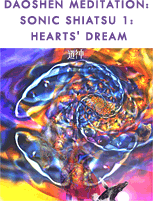Ask Ronit
 I Like Your Ponytail, A Story About Commitment
I Like Your Ponytail, A Story About Commitment
“I like your ponytail.” I said in a playful manner. “Ponytail?” he repeated in a thick French accent. There and then began the most extraordinary odyssey of my life.…
Avoid 90% of the Pesticides in Food, by Avoiding 12 Foods
Why should you care about pesticides in your food?For starters there may be as many as twenty pesticides on a single piece of fruit you eat.…
Dear Mrs. Black,It was January 1967 when this 11 year-old, frightened, little Israeli girl walked into your classroom for the first time. I had only arrived in the country two weeks before.…
With sex all around us, oozing out of our televisions, theaters, magazines, fashion, on the streets, one would think we are the most sexually informed, open and comfortable nation on the planet.”…
I’m sure by now you all have noticed the ongoing meltdown in the mortgage industry. The cause of this whole mess is a little bit complicated, rooted in both the structure of the mortgage industry, and human nature. I’ll try to explain both factors here in layman’s terms.…
Breaking old habits; Creating new Ones
We are mostly habitual beings. Webster defines habit as an acquired mode of behavior that has become nearly or completely involuntary.…
Navigation
Inquiry
A Camera to Help Dementia Patients
A small digital camera developed by Microsoft can help people with dementia dramatically improve their memory. The camera takes wide-range, low resolution photographs that can be made into a movie. Viewing the movie by dementia patients can jog their memories. However, besides jogging their memories it can also lead to long-term retention of memories. It is believed that it can increase the memory of a patient from 2% to as high as 80%. This camera may also help people with mild Alzheimer's disease by allow them to remember their recent past. read more »
China’s Turtles, Emblems of a Crisis
By NY Times
The saga of the last two Yangtze softs-hell turtles is symbolic of the threatening state of the wild life in China. The two remaining soft-shell turtles, respectfully 80 years old (female) and 100 years old (male) are our last hope for this specie.
Surveys of China's rich plant and animal life reveals a shocking and gloomy picture. Close to 40% of all mammal species, 70% of all nonflowering, and 86% of all flowering species are considered threatened. How has this come about and can it be rectified? read more »
Human Evolution May Be Speeding Up
Not only is the development of human technology speeding up but according to a new study human evolution may be speeding up as well.
Henry C. Harpending, an anthropologist at the University of Utah along colleagues compared the DNA of chimpanzees (our closest relative) and humans. They noted that the current rate of change does not match the number of differences concluding that our evolution must have been much slower than it is now. read more »
Climate change begins in our own backyard
By reli4nt
When a man moves away from nature his heart becomes hard.
Lakota
Autumn may seem like an odd time of year to consider green landscaping and gardening practices but as tons of leaves are carted away from properties across the country is a reminder of all the dangerous and expensive fertilizers that will take their place. A reminder of the mind set, the culture of waste, that has evolved in the place of many of our ancestors' values. read more »
India Finds Mutated DNA Where Water Is Toxic
By NY Times
Toxic chemicals from fertilizers and pesticides are seeping into the groundwater in Punjab, India's grain belt, and may be causing genetic mutations in the population. Higher rates of Cancer and other abnormalities, including premature aging in children living in the surrounding area are being observed. A two year study commissioned by the Punjab Pollution Control Board found mutated DNA in the blood samples of 65% of the people tested.

 My Hero
My Hero We Are Sexual Beings
We Are Sexual Beings The Banking Implosion
The Banking Implosion









